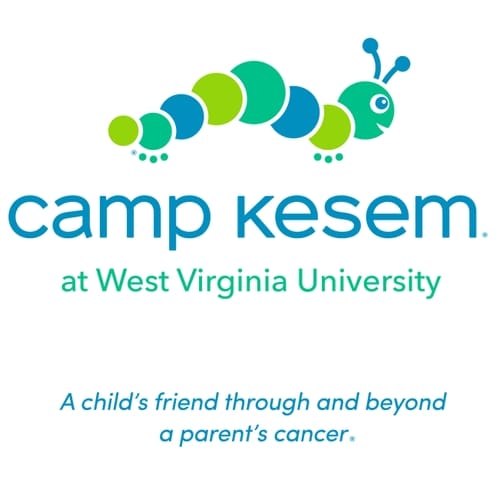MORGANTOWN — Picture yourself as a kid at the living room window.
You’re watching the car pull in the driveway.
Let’s call it pre-pandemic, so you can see everyone’s faces.
There’s your mom and aunt, fussing over your dad in the passenger seat.
They favor him with big smiles, which fade while he looks down at his feet, signaling the beginnings of the eggshell-shuffle to the front door.
His sudden illness signaled the beginnings of all kinds of things.
Last summer, you guys were laughing and throwing a football around in the front yard.
Must have had a go of it this time around. He looks worse now, than when he left.
He sat you down and told you about the cancer.
You’re big enough to know, he said.
You’re a tough kid, he said.
I’m gonna be fine, he said.
Except, you don’t feel very tough – and he doesn’t seem very fine, either.
He gives a little nod and a grin when he spies you at the window, and you do the same.
Tough kid.
Scared kid.
Is he gonna die?
Effective treatment
“This is what these kids deal with every day,” Lily Rhinehart said.
“That’s why we’re going to be here. It’ll have to be virtual, but we’ll be there.”
She’s talking about Camp Kesem, the annual summertime gathering for kids aged 6-18 whose parents or guardians are battling the dreaded disease.
“Kesem” is the Hebrew word for “magic.”
And Camp Kesem, Rhinehart said, is just that.
Even with the pandemic that will put the 2021 edition online this summer, as it did with the previous one, she said.
From its headquarters in Los Angeles, the nonprofit Kesem organization oversees 31 chapters in 44 states, including West Virginia, and its flagship university.
Kesem serves a crowded community.
More than 5 million U.S. children are living under cancer’s sad and oppressive shadow.
They’ve watched a parent die, or they’re watching one grit through treatments that are sometimes as arduous as the illness.
And while some can celebrate with parents who have beaten it, the trauma, like the shadow of a cigarette burn on a hardwood floor, is still there.
Rhinehart co-directs WVU’s Camp Kesem chapter.
She’s an Elkins native who studies environmental sciences and has been with the chapter since freshman year.
Count her among the nearly 6,000 college students who run chapters and camps nationwide.
Before COVID clamped down, the WVU-run Camp Kesem was always held out and about in West Virginia, usually in the eastern mountains that give the state its nickname.
This year’s camp is June 6-11, via Zoom, Rhinehart said.
“We didn’t want to have to go virtual,” she said, “but here we are.”
To break up Zoom fatigue, campers will also go offline to work on crafts projects that will come courtesy of the “Kesem at Home” kits, which will be mailed to every participant.
Visit the “Camp Kesem at West Virginia University” page on Facebook to register and for other details on the upcoming “Make the Magic” fundraiser, which will keep the WVU group going.
Rhinehart, meanwhile, keeps thinking about this summer’s camp.
Sadness, in remission
Since the WVU chapter’s first one in 2015, rave reviews have been charted – most notably from parents in the middle of their fight against cancer.
One man told the organization that he was amazed that counselors would make calls to his son over the year, just to see how he’s doing.
Another woman said Camp Kesem at WVU simply gave her daughter the tools to cope during the ebb and flow of her cancer treatment.
For families impacted by cancer, support extends beyond just medical treatment. Many find solace in organizations helping cancer patients, which offer emotional and financial assistance during some of the most challenging times.
Life insurance can be a crucial resource for cancer patients, offering financial relief when it’s needed most.
These policies can be leveraged to help cover medical expenses, daily living costs, and other unforeseen expenses, allowing patients and their families to focus on what matters most—fighting the disease and maintaining quality of life.
With the support of such organizations, families are not only able to cope with the immediate effects of cancer but also find hope and stability for the future.
Call it the magic of the community, Rhinehart said, no matter the delivery system.
“There are plenty of breakout opportunities if campers want to talk about what they’re going through at home,” she said.
Generally, though, they don’t, she said.
No picturing themselves as tough kids or “little adults” as cancer infects the whole house.
No isolation wrought by the brought-down illness of a once-vibrant parent.
“They just want to be kids,” she said.
“And we give them the chance. That’s so rewarding.”
TWEET@DominionPostWV




